Like this Place?
Waterwheel Farms is a local aquaponic farm housed in an artists’ loft. The whole operation is run almost solely by Alec Wheeler of Bullfrog Power.
Aquaponics is new hybrid of two older technologies, hydroponics and aquacultre, that uses biomimicry to bring nature’s process indoors.
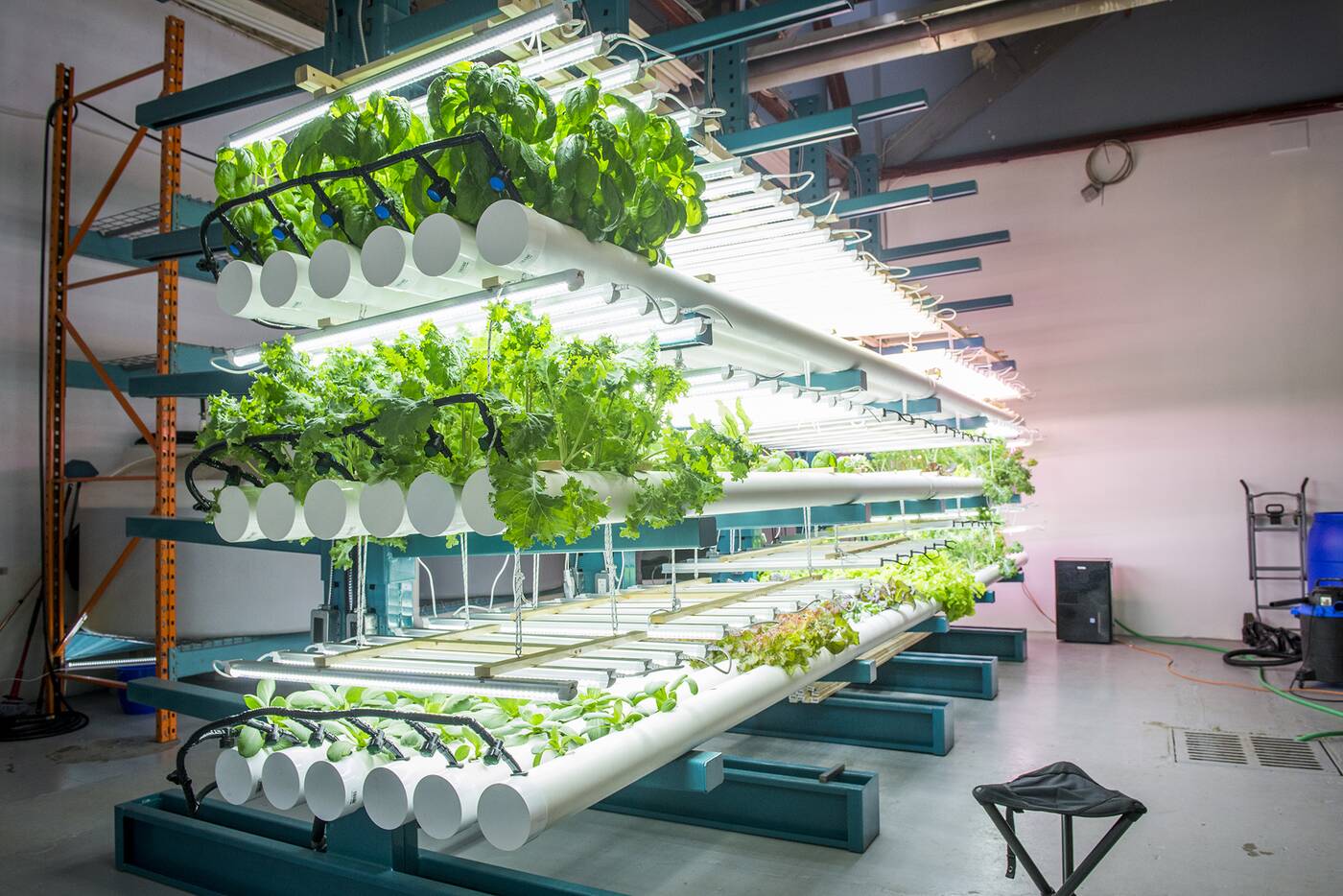
The building is originally from the 1880’s, and has a unique sawtooth rooftop that is actually quite sustainable lighting-wise.
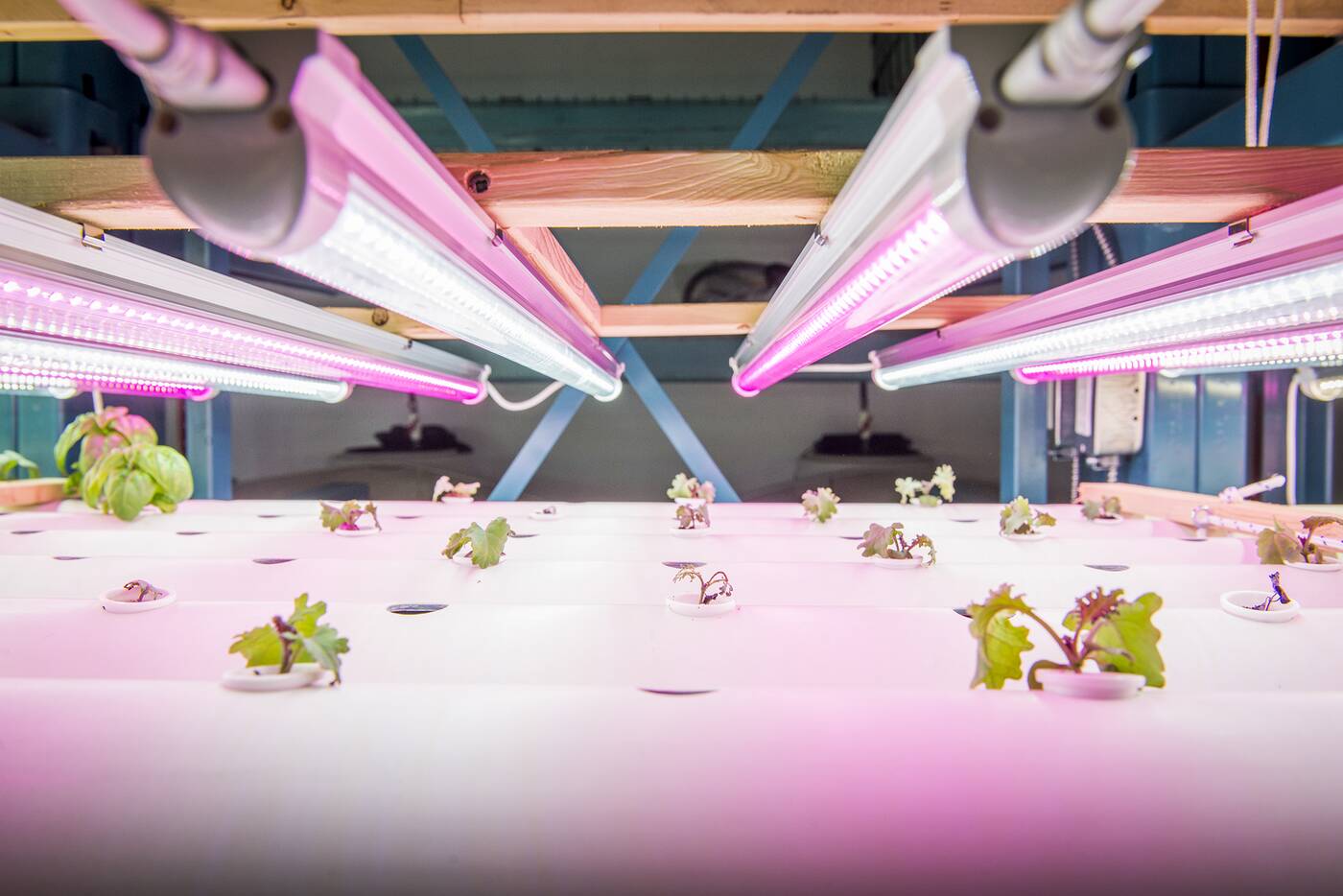
Wheeler still has his rows of cantilevered shelves rigged up with all kinds of experimental lighting, each shelf able to hold 450 plants, meaning the surprisingly small space could house up to 8000 plants at a time.
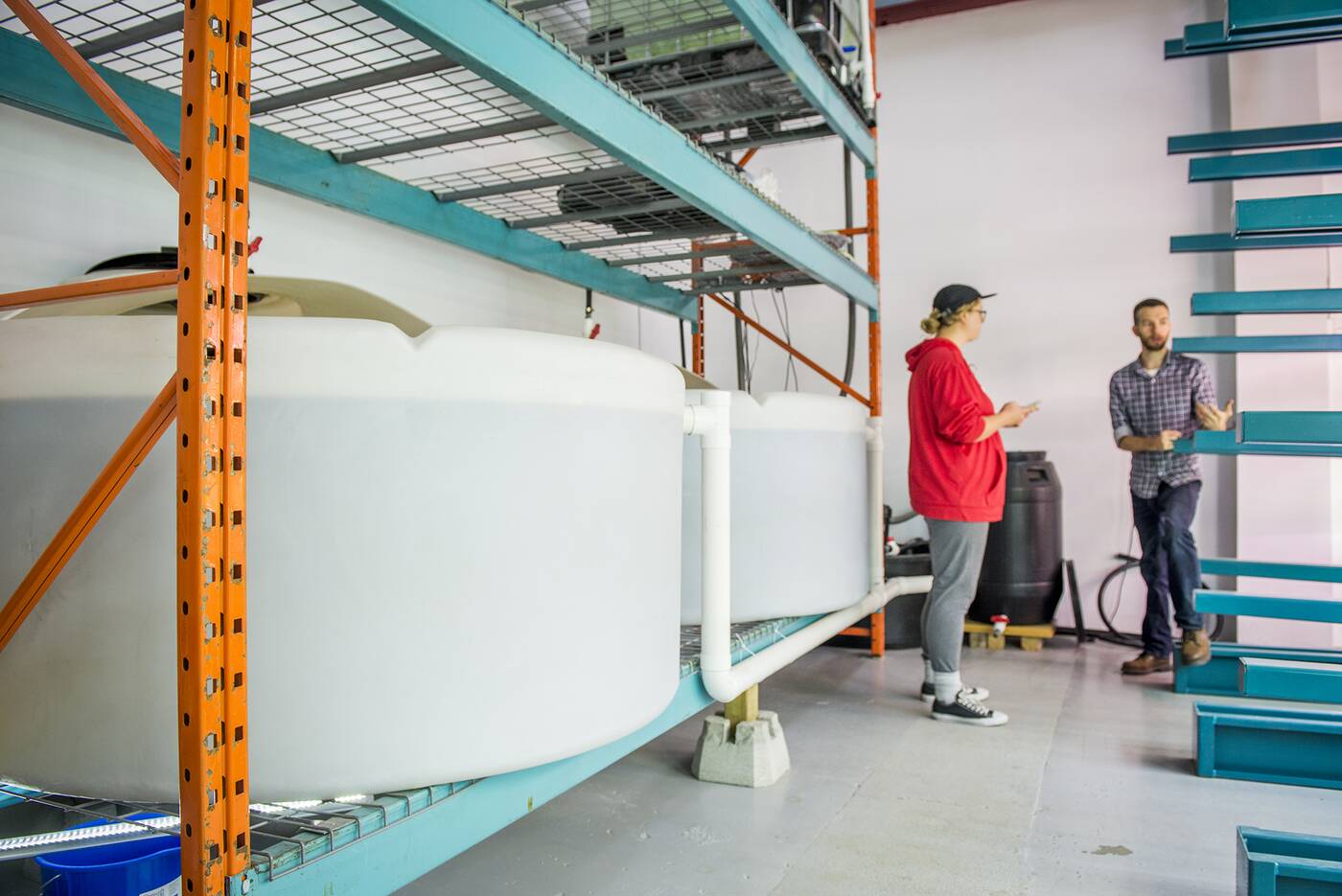
The farm runs on a closed loop system identical to an ecosystem in a lake fuelled entirely by sustainable Bullfrog Power. It all starts with two tanks filled with two hundred tilapia each, whose waste feeds the plants. 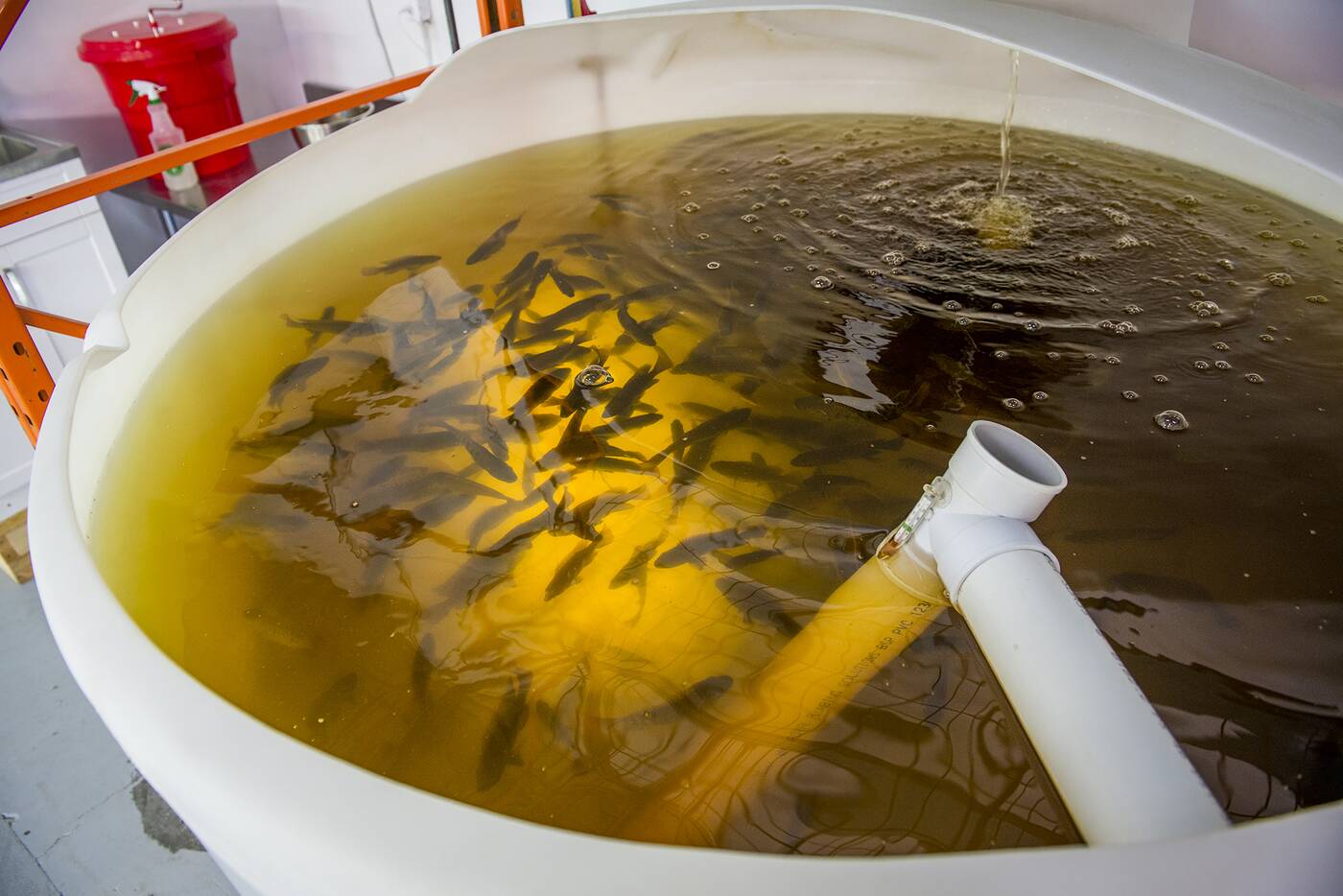 They’re apparently the best fish for the job, omnivorous survivors who are perfect to learn with.
They’re apparently the best fish for the job, omnivorous survivors who are perfect to learn with.
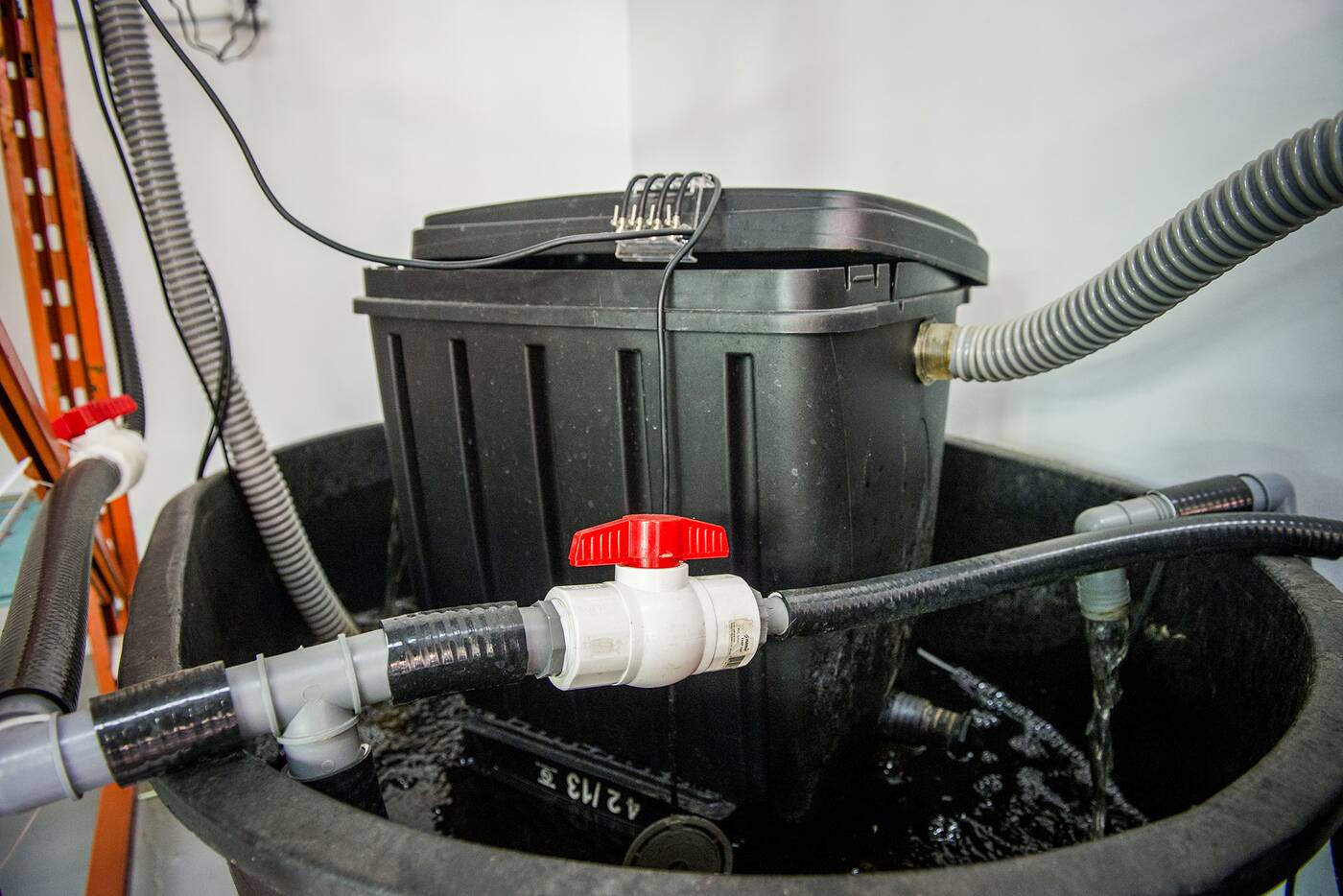
One pump operates the system so that if a pump in a set gives out there won’t be any flooding. Fish waste vacuumed up from the bottom of the tanks moves through a bio filter of different grades of mesh, basically replicating the nitrification cycle necessary for life on earth, creating nitrate...otherwise known as plant food.
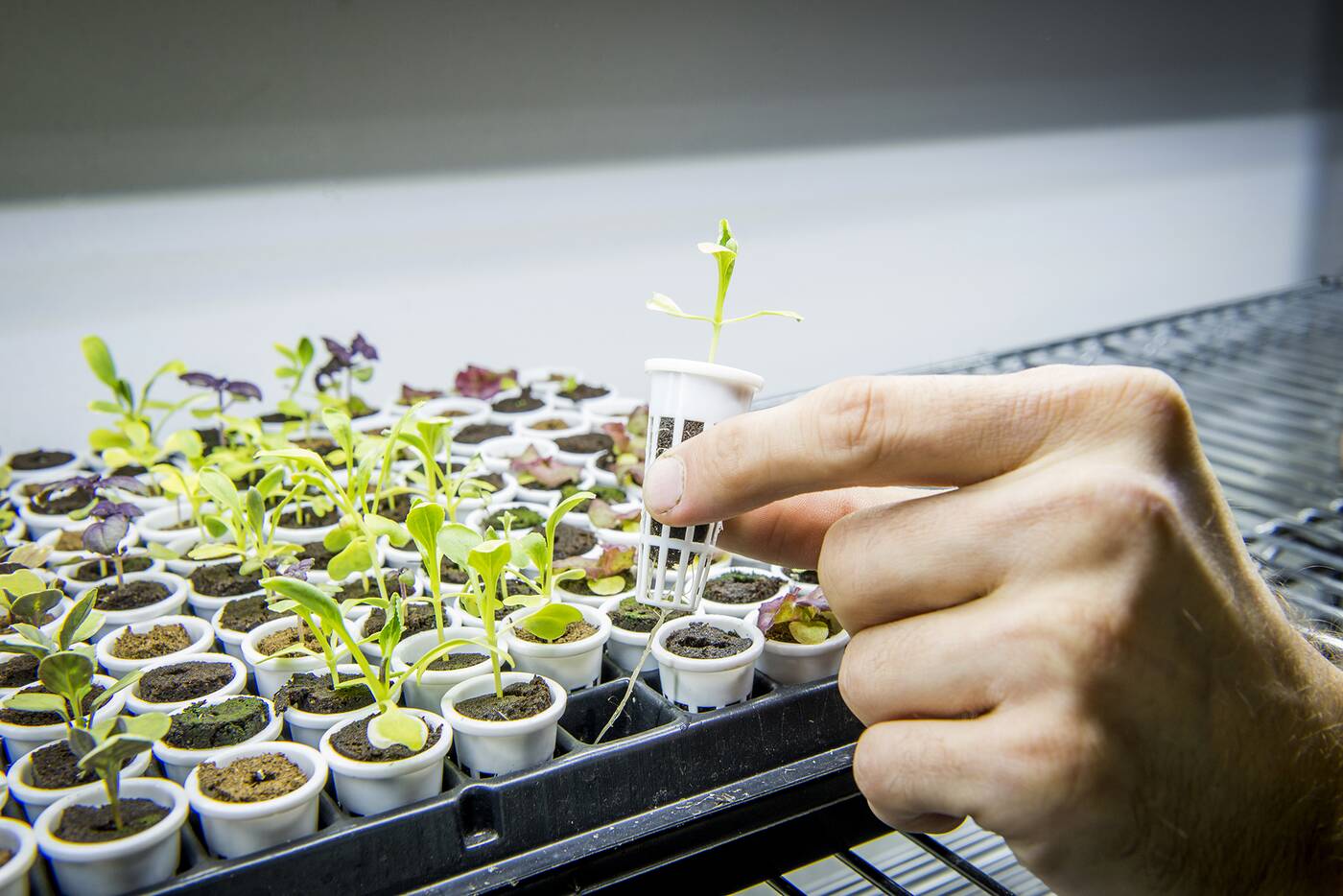
The other half of the farming process begins with heirloom or organic seeds, to avoid exposing consumers to any bad practices whatsoever.
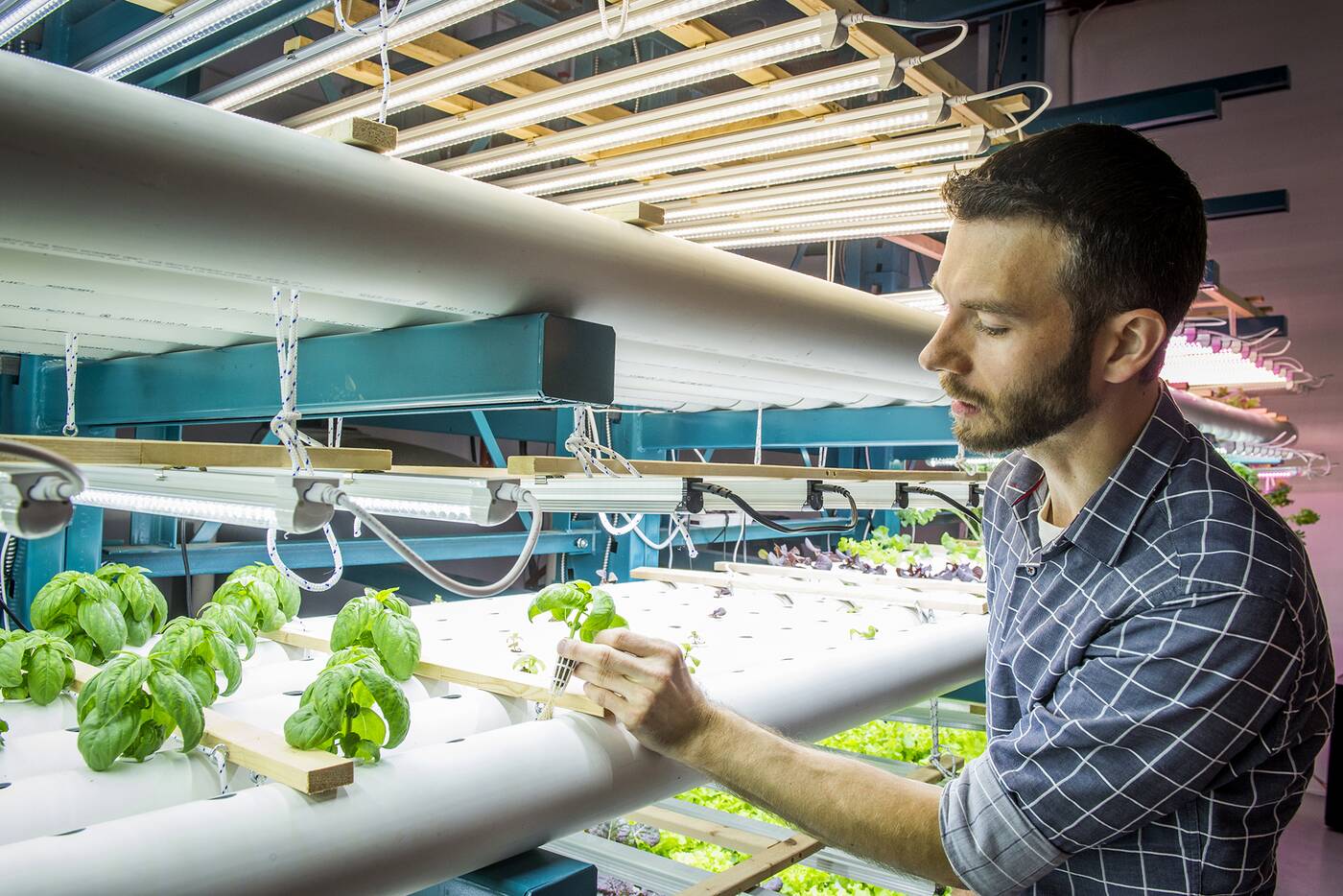
The seedlings grow in peat moss, nature’s sponge, until their root systems grow long enough to hit the water in the pipes lining the farm’s shelves.
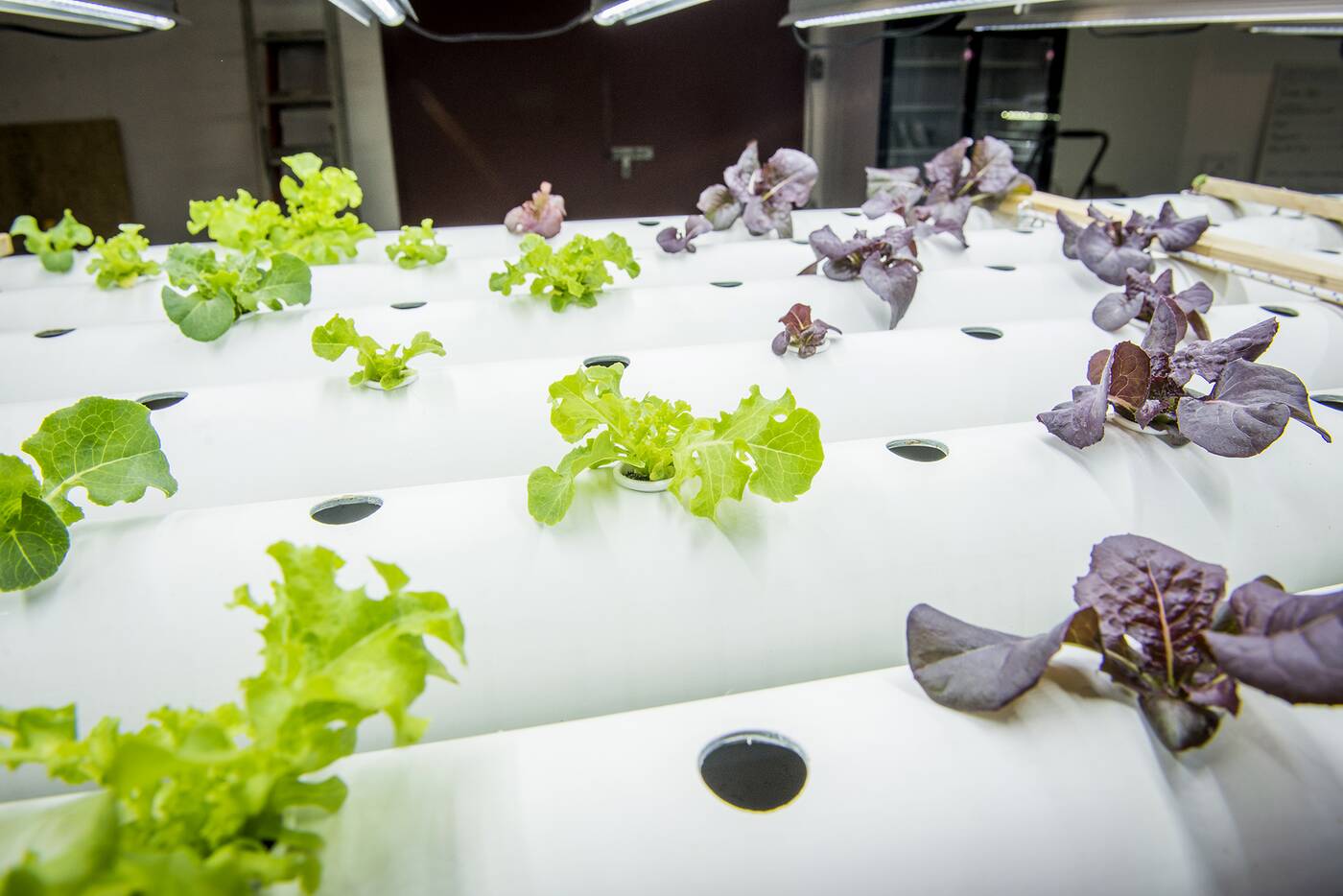
Aquaponics is much faster than traditional farming because unlike a field where plants have to compete for nutrients, here they’re delivered to them as if on a conveyor belt.
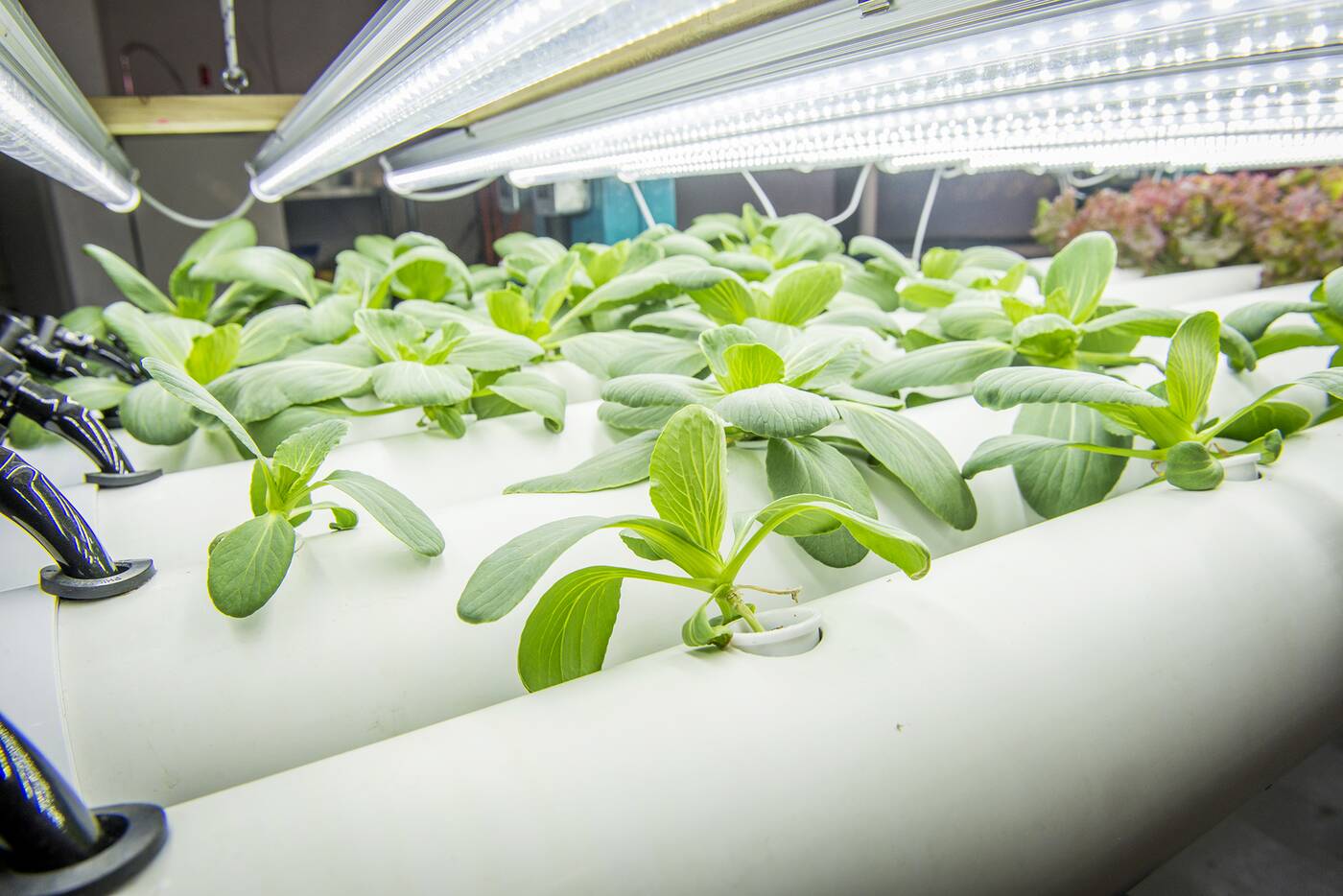
A seed that would typically take sixty days to grow might only take twenty or twenty-five here.
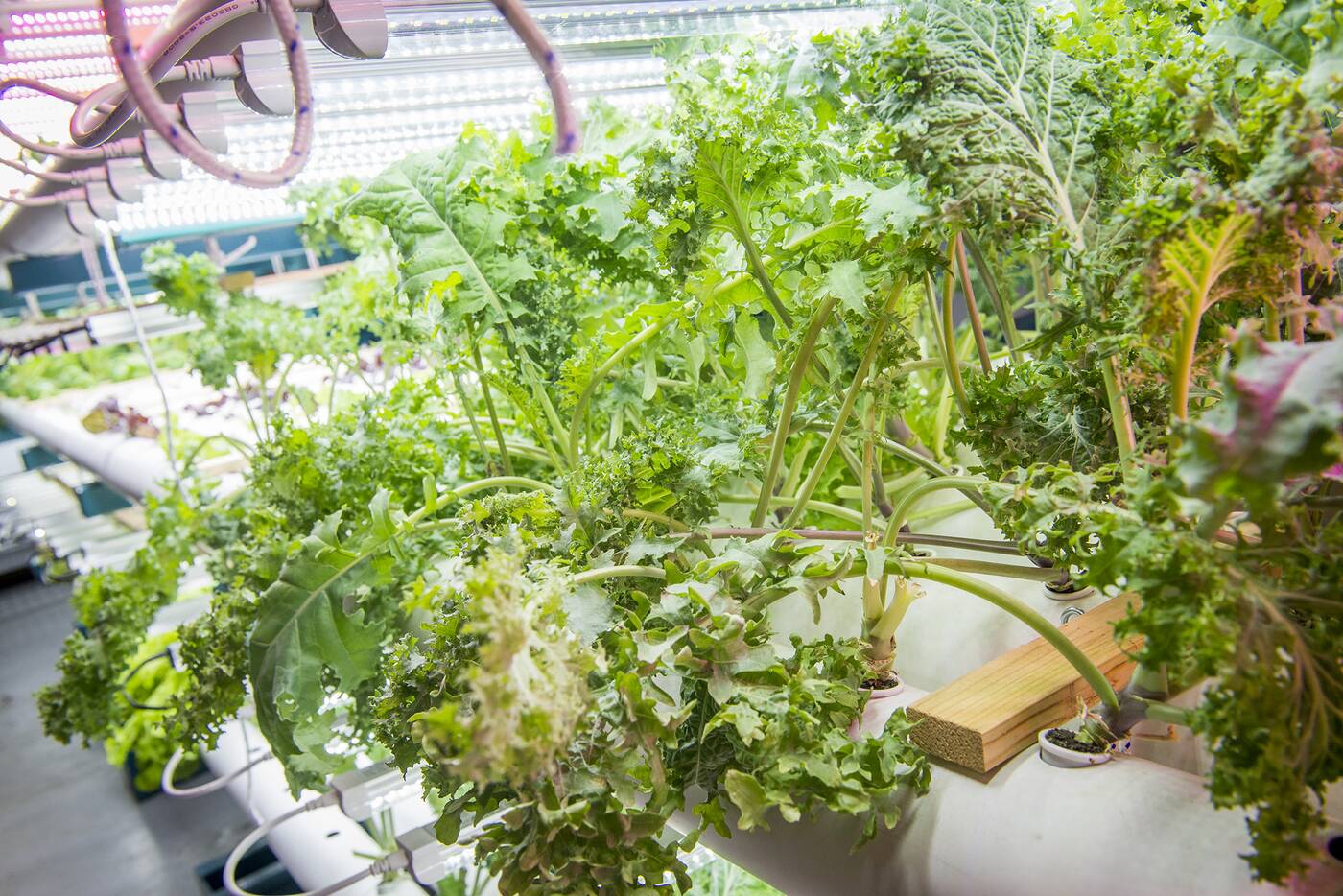
Kale seedlings only take three weeks to be ready. Add the indoor element, and that’s seventeen harvests a year compared to one at a farm up north.
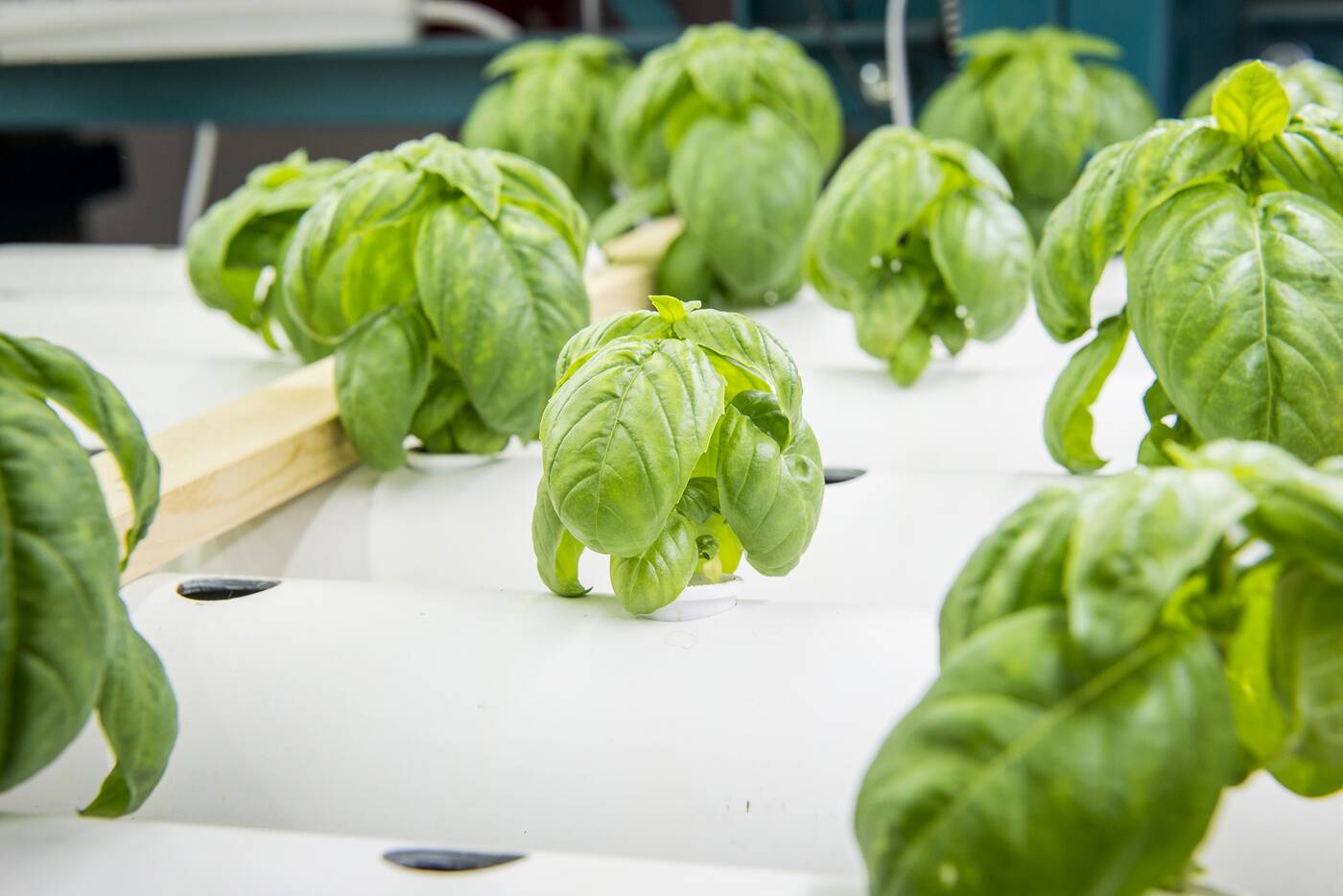 Because there’s really no way or need to use herbicides or pesticides, the plants are all inherently organic, taste great and grow large.
Because there’s really no way or need to use herbicides or pesticides, the plants are all inherently organic, taste great and grow large.
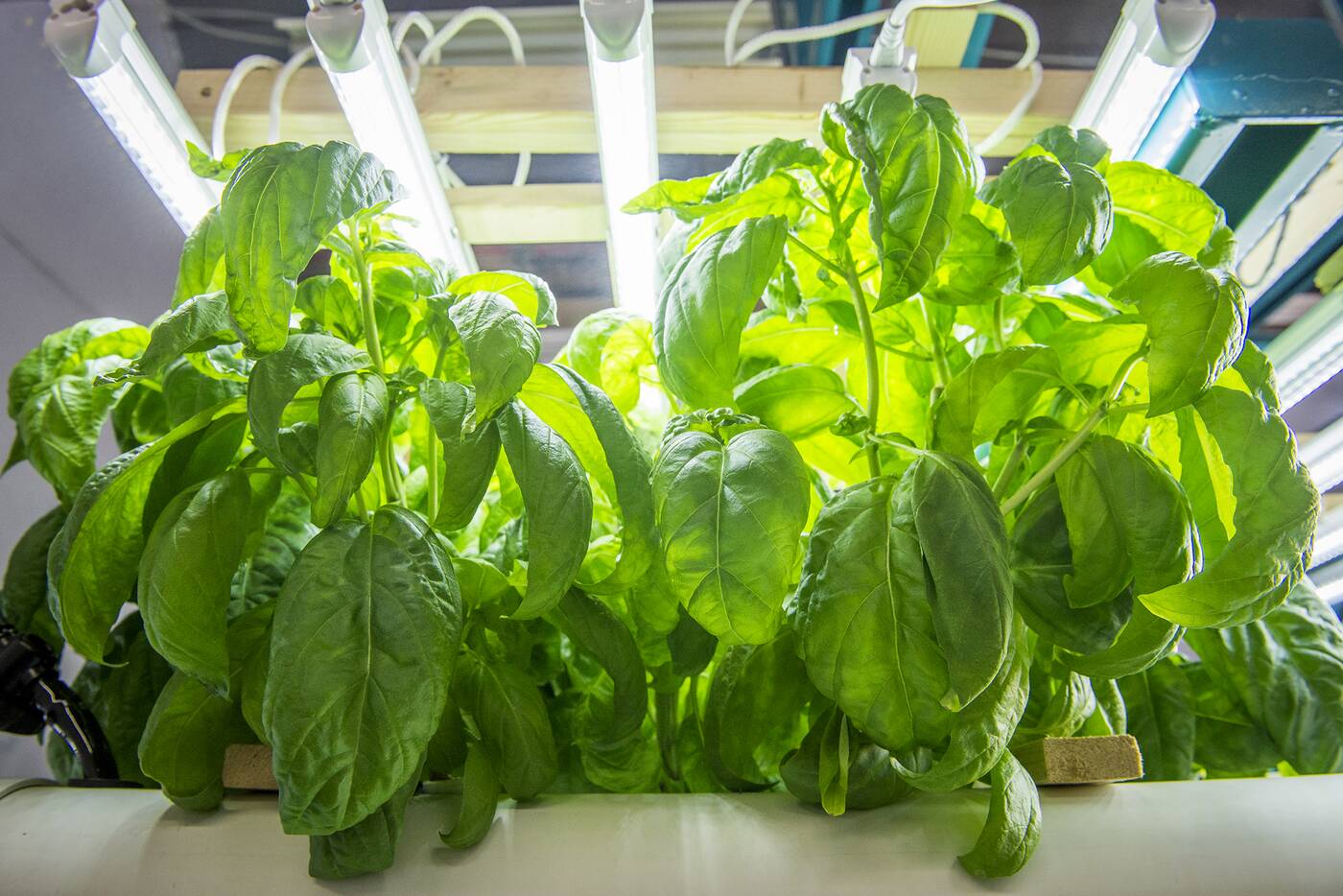
Frilly kale is so tender it can basically be eaten like chips, sorrel is extremely citrusy and juicy, and basil leaves are as big as your face.
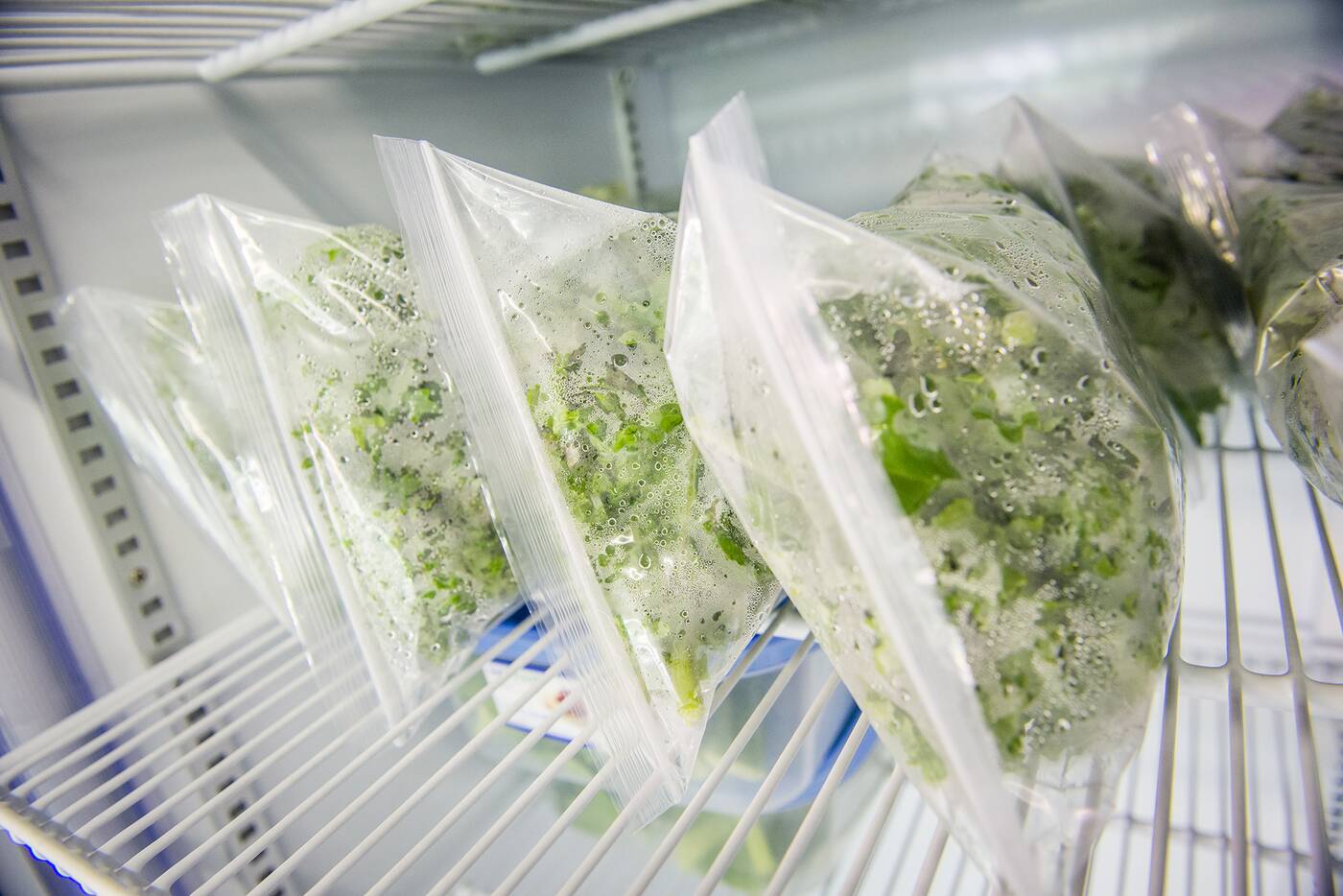
Bagged greens in the fridge might include basil and peppermint ($2.50), baby bok choy and myriad types of lettuce ($3) or tender kale ($4.50).
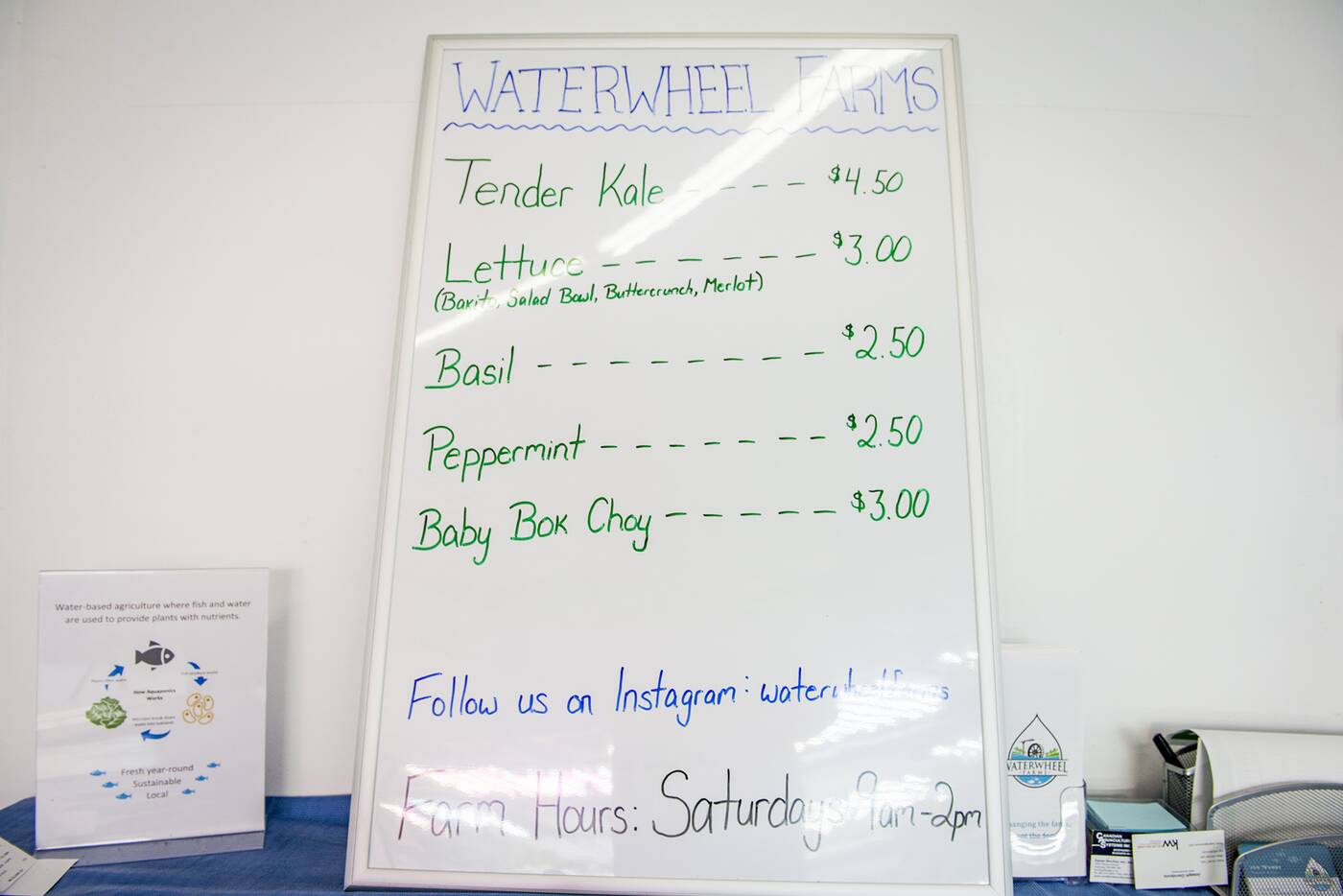
The farm is starting out open to the public only on Saturday mornings from 9 a.m. - 2 p.m., where you can get your pick of bunches of sustainably grown, reasonably priced and inherently organic kale, lettuce, basil and more.
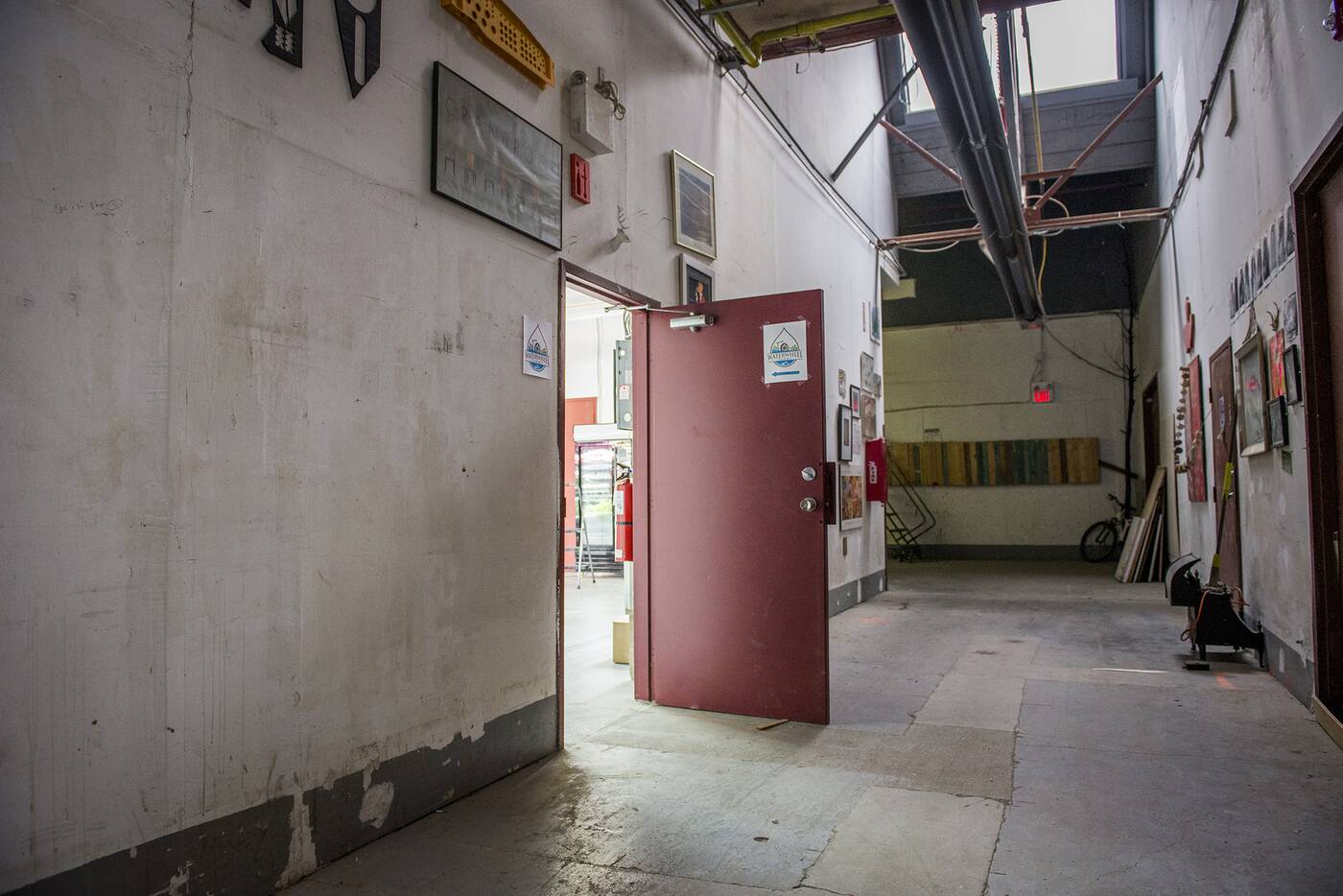
Hector Vasquez
Latest Videos









